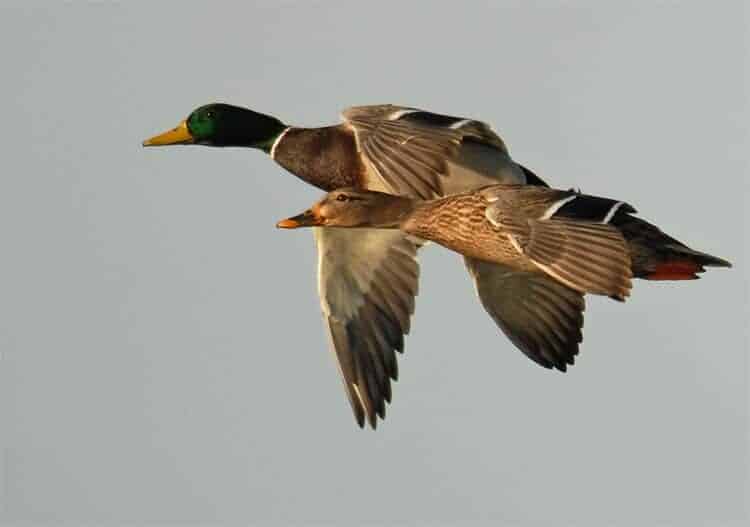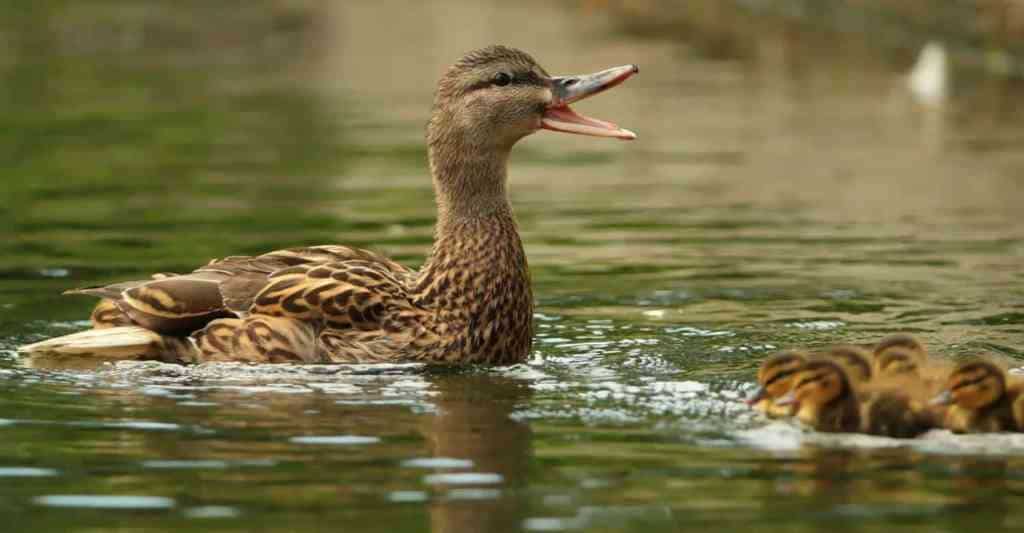When you first start duck hunting, it can be pretty intimidating. There are so many new things to learn, it can have you running in circles. So, to lighten the load, you try to go down to the basics to see what you can cut out. Do you really need decoys? Do you have to have the perfect camo? What shot should you use? Do you even need to call? Well, I am here to sift through those questions for you, but today we are going to talk about calling.
Generally, calling is a huge part of duck hunting. Many hunters absolutely love to just sit in the blind and blow on a call until their heart’s content, even if it does not bring in any birds. If you are just starting out, calling can be a lot to learn, and you probably just want to get out in the swamp as soon as possible. So, do you really need to be good with a duck call before you get into the blind? What would happen if you just let ducks be ducks and do not use a call? Let’s find out.

Duck Behavior Without Calling
Believe it or not, ducks will land in a pond that does not have a human blowing as much as they can on a duck call. Here’s how it normally goes down. The first group to land on the pond will circle a number of times and if they deem it safe to land, they will cup and go in gradually. After the first flock lands, other ducks will not have near as hard of a time landing there. The first flock is there, so it must be safe. If you just patiently wait for ducks to land, they eventually will.
How Ducks Naturally Choose a Location to Land
If you leave them alone, ducks are going to land where the food is and where they feel protected. When I first started duck hunting with my dad, we hunted on a small to medium size swamp. In front of our blind was a large and deep patch of open water. A lot of ducks wanted to land there and when we called them in with decoys present, they landed right in that open patch of water in front of us. There was plenty of food there and when decoys were present, the ducks thought there were also other ducks there. This must mean it is safe and has food, a.k.a. a great spot to be.
On the other hand, if we did not call to flying ducks or only let out a couple of simple quacks, they tended to land a bit farther down the pond in an area that was thicker, safer, and had more food. This got me thinking about what the difference really was. If you break it down in terms of safety alone, it is actually quite simple. These ducks picked the spot that provided the most cover and still had adequate food. Why wouldn’t they? I later confirmed this theory a few years later when we went on a spur of the moment hunt without decoys. It does not make a lot of sense to aggressively call when there are no decoys, so we didn’t. What we saw was that most of the ducks that landed, landed in the protected spot instead of the open water in front of us.

While this may not apply to all situations, like an open clear pond, we can use these principles anywhere. Here’s the best part… if you make an assumption of where you think the ducks will land if you do not call, you can test it and quickly be proved right or wrong. Then, one could only imagine how setting up in the duck-preferred area with decoys and an actual calling strategy could increase your success rate.
The Perfect Duck Call
Another thing you can do if you choose to not use a duck call is let a small group of one to three ducks land in the pond if the opportunity presents itself. The best duck call is a duck. So if you let a few ducks land, then hopefully when a larger group comes around, they can call them in for you. Then you have a better chance of killing a few versus just shooting at a pair of ducks. Using live ducks is not a new idea. Back in the day, hunters used to use tame ducks as calls. They tie them to a stake or rock to keep them around and the tame ducks would call and look better than a mojo decoy, doing all the hard work for them.
Obviously, I would recommend actually using a duck call and getting good with them, but if you are searching “can I duck hunt without calling” then you probably do not want to use a call. So if you are dead set on not using a call, or just have not picked one up yet, letting a few land and do the calling for you may be something you want to think about.

When It Is Good to Be Silent
Not using a duck call is not always a bad thing. Some of the best duck callers in the world suggest that sometimes we should just put the call down. Your duck call should be used as a tool and not as background noise like some hunters make it seem.
Assuming you are using a call, after you let out a few sequences, stop calling for a few moments and let the birds work. This is especially true if you are hunting a smaller pond or lake. If you only have a dozen or a half dozen decoys then your calling should not sound like there are a hundred ducks. Knight and Hale have a great blog post about this as well.
You Can Learn the Basics of Calling
If you are just starting out, watching experienced duck hunters use a call can be fairly intimidating. Even if you feel like you cannot make the complicated calls and sequences (which you can’t as a beginner), you can definitely learn the basics. Everyone starts somewhere, even the pros. So if you do not want to hunt with a call just because you do not know how, do not be afraid! You can learn the basics of calling in a single evening. Here is World Champion Duck Caller Jeff Williams with an instructional video on duck calling for beginners:
I also want to point out that you can use a cheap duck call too. There is no need to go out and spend $80 on a duck call when you are just starting out. You can get a simple mallard call on amazon for $15 from Primos. Will this call be the best in the world? Probably not, but it will definitely get the job done. People have more expensive taste than ducks.
And if you are just starting out, you should check out my duck hunting checklist.
Conclusion
To wrap it all up, duck hunting without a call is totally possible. Pay attention to where ducks feel safe, and where they like to land when they are not being worked. Then, set up in that location and be patient. You could also consider letting small groups land and do all the calling for you. However, if you do not want to use a call just because you are nervous about it, do not worry. You can easily learn the basics of duck calling in a single evening and do much better on the pond.

